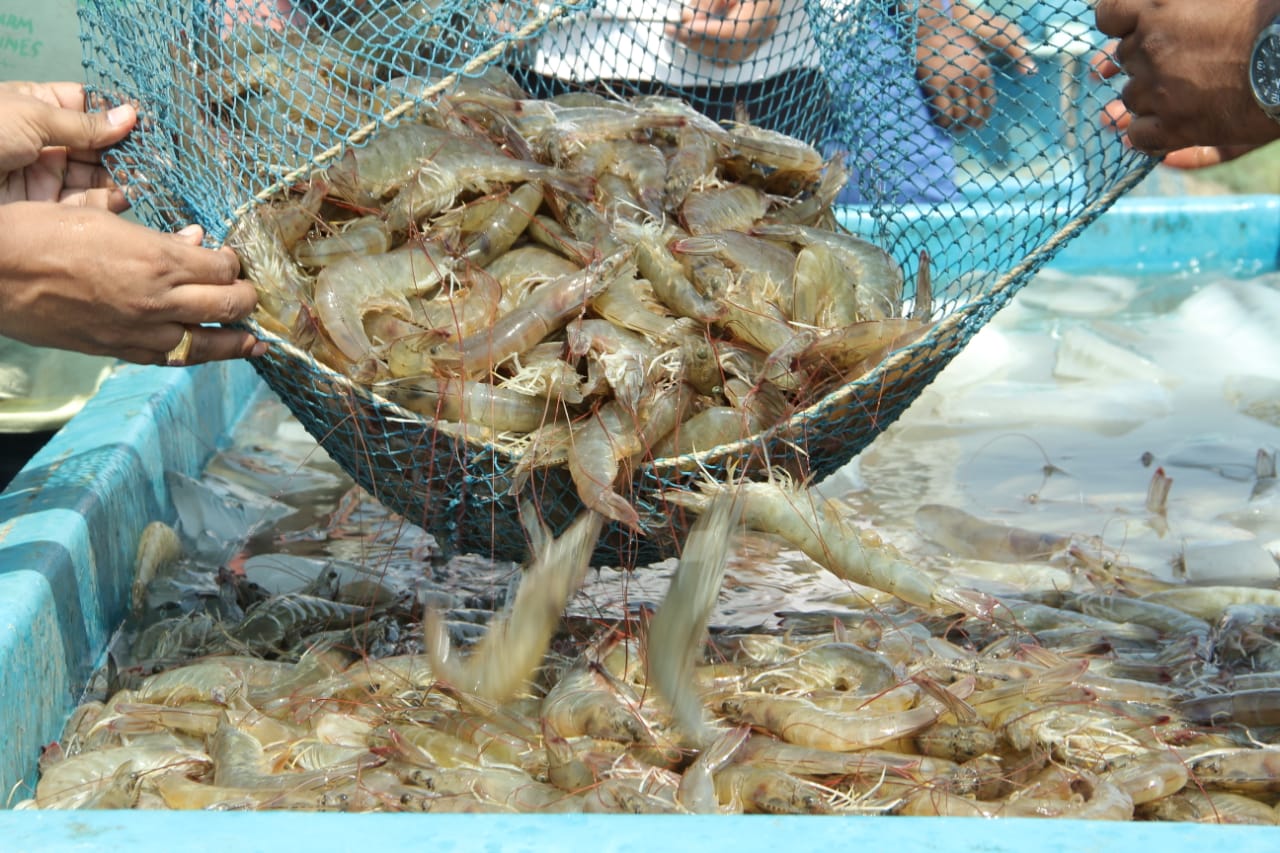Amid deteriorating Indo-China trade relations, aquaculture experts have urged the farmers not to go for panic harvest now to avoid distress sale of shrimps. They also apprehend that the increasing dependence on China market over the last three-four years will have a negative impact on the shrimp business in India.
Speaking to AQUA POST, Dr. Manoj M Sharma, an expert and acclaimed shrimp farmer who understands the international shrimp trade said, “Indian shrimp farmers are to be hit hard if immediate corrective measures are not taken. First of all, shrimp farmers should not go for a panic harvest at this juncture. If the situation demands, then they can talk to processors for storing the shrimps processed for a couple of months to checkmate the falling price at the international level.”
At present, India exports about 25-30% of the total shrimps to China, the second highest importer of Indian shrimps. The USA is the biggest importer of Indian shrimps with about 40-45% market share. However, European Union Market (EU) share has dwindled over the last three-four years.
Citing the reasons for the declining shrimp export to EU market, Dr. Sharma said, “In the case of EU, exporters and processors have to adhere to the quality assurance and certification procedures outlined by the EU authorities. On the other hand, it is easy to trade with China. There is no need for quality testing and compliance. Several exporters and processors found it convenient to export to China. It is a big mistake our Indian processors have committed.”
“That’s how China developed the market. Now it is difficult to suddenly stop exporting to China. There is no alternative market. And a domestic market cannot be developed overnight.”
Talking about the international shrimp trade scenario, Dr. Sharma said, “Ecuador exports about 50% of its total shrimps to China. It produces around 6 lakh tons of shrimp. With high dependence on the China market, it has also lost its bargain power. Now, they are reportedly forced to sell at $ 2.5 US per kg, lower than the production cost. How will a farmer survive in this scenario?”
Experts believe that it is the need of the hour to develop alternative export markets and build a strong domestic market network for shrimp products in the country.
(please share your experience, interesting news articles and case studies at aquapostnews@gmail.com)





